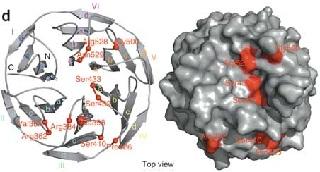Using AI to control energy for indoor agriculture
30 September 2024
Published online 15 March 2012

Hypertension is a common chronic condition that raises the risk of heart attack and stroke, and its complex causes involve both environmental and genetic factors. Familial hyperkalemic hypertension (FHHt) is a rare, inherited form of hypertension in which sodium and potassium ions build up in the kidney, pushing up blood pressure.
Two genes, WNK1 and WNK4, have already been identified as players in FHHt. For only a minority of people with the disease; a third gene, KLHL3, is implicated in a report published in Nature Genetics.
Researchers — led by Xavier Jeunemaitre, a geneticist at the Georges Pompidou European Hospital in Paris, and including Chebel Mourani of the Hotel Dieu de France, in Beirut — discovered that the KLHL3 protein is part of a complex signaling pathway that regulates ion transportation in the kidneys.
The researchers sequenced the coding regions of the genomes of families with members diagnosed with FHHt. The team identified several variants of the KLHL3 gene, which is highly expressed in the distal nephron, a region that regulates ion concentration in the kidney. The changes wrought to the KLHL3 proteins are clustered in two zones on the protein's surface that interact with other molecules. Studying rat kidney cells, the team found that normal KLHL3 proteins inhibit an important ion transporter — the Na+-Cl–-cotransporter (NCC)—by tagging it to be destroyed by proteasomal degradation.
When the protein's activity is impaired, ions build up, indirectly leading to FHHt. "This reveals a new mechanism of regulation of ion transport through their intracellular degradation by ubiquitination," says Jeunemaitre.
doi:10.1038/nmiddleeast.2012.34
Stay connected: